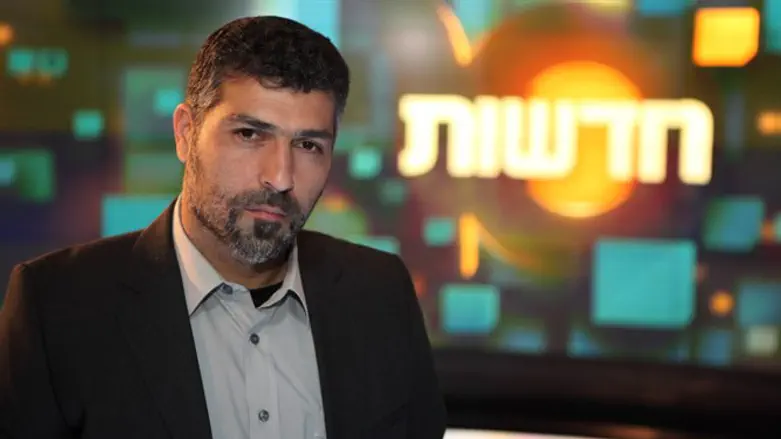
Zvi Yehezkeli, Arab affairs commentator for Channel 13 News, spoke today (Sunday) with Erel Segal and Peace Now founder Yariv Oppenheimer on 103FM about the significance of the normalization agreement with the United Arab Emirates.
According to Yehezkeli, one of the motives for the agreement was the possibility of war with Iran. He also weighed in on whether it was right for Israel to give up on sovereignty in return for the accord.
Yehezkeli explained that the agreement with the Emirates was really a deal –"not a peace treaty between two countries previously at war." "It is the final step in a process set in motion long ago. We have had relations with the Gulf states for the last 15 years," he added
He claimed the deal was the latest formula for "suspending or postponing annexation in exchange for normalization." Yehezkeli said that while Israel was portraying it as "Now we can go on vacation in the Emirates," the UAE was making it sound like, "By singing a deal with Israel, we saved the Two-State Solution."
Peace with UAE irrespective of sovereignty
Yehezkeli said he believed peace with the UAE would have been reached irrespective of the sovereignty move. "The Emirates would have come to us asking for normalization sooner or later. Why? Because Iran is the biggest threat facing the Gulf states. The peace agreements signed with Egypt and Jordan are ones saying: 'We can't defeat Israel, so not having to engage in constant conflict, safe borders, regime stability and economic prosperity is much more advantageous for us.'"
"The Arab world, as a whole, has been moving in this direction for a long time now, with countries like Morocco, Bahrain, Oman, and Kuwait on the verge of formally recognizing Israel. We are talking about years of relationships that have come as a result of the Iranian threat." "If Israel had applied sovereignty, the Emirates would have come asking us for a peace deal a few months of now. We would have been able to kill two birds with one stone," he stated.
He also noted that yesterday "a senior Iranian official said: 'We made a mistake with the Gulf states. We shouldn't have been so hard on them. Now we've lost one and will soon have Israeli bases at our doorstep. [The gulf states] put two knives in the backs of the Palestinians. The Palestinians hurt themselves more than anyone else did. This marks a complete break from the traditional equation."
"Palestinians still on the agenda"
Yehezkeli said that, "Mahmoud Abbas has always relied on outside help. He needs international from the European Union to survive and that's coming apart. But that's just one side of the coin. The Palestinians won't disappear from the political arena. They're probably preparing for the 'day after Abbas' when [Mohammed] Dahlan will be the one to run the show. He's leading the type of hedonistic lifestyle he enjoys. His money might play a role when it comes to attaining a position of power."
Yehezkeli also referred to a "clear intelligence assessment," that he said he'd "received from the Shin Bet and IDF, according to which there was a high probability of infighting within the PA after Mahmoud Abbas is relieved of duty. Look at Nablus (Shchem), he said. "Last week, a Palestinian policeman was murdered by one of his rivals. The place is full of weapons and personal interests, and a lot of officials interested in the top positions. So [the handover of power] won't be smooth. Given the current state of affairs on the ground, there will inevitably be some kind of violence."